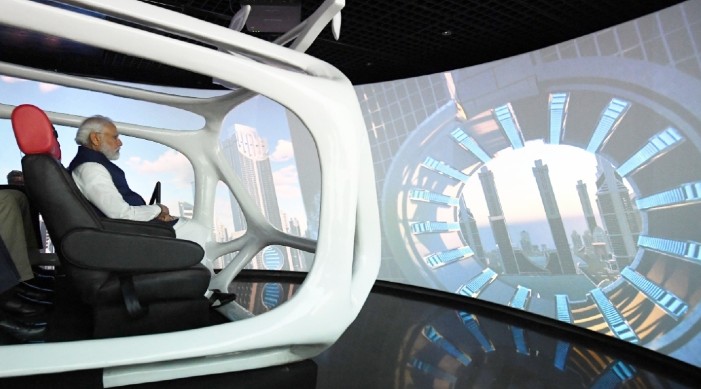British PM Boris Johnson ranked the lowest among the leaders surveyed with 26 per cent approval rating
Prime Minister Narendra Modi has topped the global rating amongst world leaders with an approval rating of 71 per cent, a US-based global leader approval tracker Morning Consult said in its latest ratings of the international leaders.
Among 13 world leaders surveyed by the research firm, Prime Minister Modi tops the list with 71 per cent, followed by Mexico’s Andrés Manuel López Obrador (66 per cent), Italy's Mario Draghi (60 per cent) and Japan's Fumio Kishida (48 per cent).
As per the research firm, US President Joe Biden is ranked at number six with a 43 per cent rating. He is followed by Canadian President Justin Trudeau at 43 per cent and Australian Prime Minister Scott Morrison at 41 per cent.
In November 2021 too, Prime Minister Modi had topped the list of the most popular world leaders.
In May 2020, the same website gave the highest rating to Prime Minister Modi with approval of 84 per cent. In May 2021, however, it dipped to 63 per cent.
Morning Consult is currently tracking the approval ratings of government leaders and country trajectories in Australia, Brazil, Canada, France, Germany, India, Italy, Japan, Mexico, South Korea, Spain, the UK and the US.
“The latest approval ratings are based on data collected from January 13-19, 2022. Approval ratings are based on a seven-day moving average of adult residents in each country, with sample sizes varying by country,” Morning Consult said on its website.
Morning Consult relies on real-time polling data on political elections, elected officials and voting issues to conduct surveys. The research firm conducts more than 20,000 global interviews daily with the adult population.
The global leader and country trajectory data is based on a seven-day moving average of all adults in a given country, with a margin of error of between +/- 1-3 per cent. While the average sample size in the US is 45,000, it ranges from roughly 3,000-5,000 in other countries.
Surveys are weighted in each country by age, gender, region and, in certain countries, education breakdowns based on official government sources.
In India, the sample is representative of the literate population.
 Contact Us
Contact Us  Subscribe Us
Subscribe Us









 Contact Us
Contact Us
 Subscribe
Subscribe
 News Letter
News Letter

